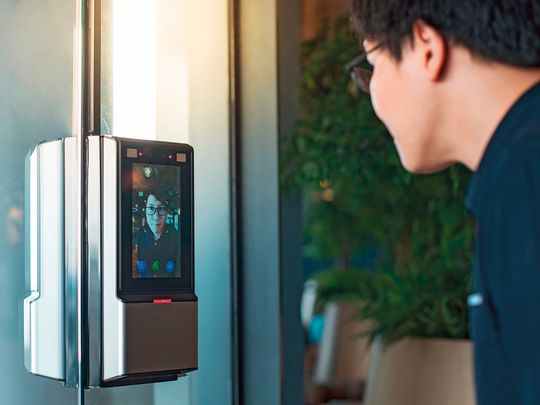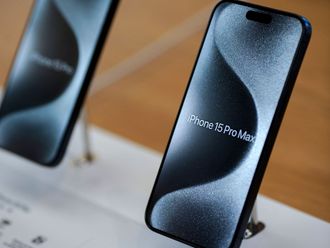
In a study released by global data analytics and market research firm MarNtel Advisors Middle East Smart Home Market Research Report for the period 2023-28, the UAE accounted for the largest share in the Middle East smart home Mmrket, primarily driven by the rising number of internet users and the increasing demand for smart devices. The UAE experienced tremendous growth in internet penetration, leading to a surge in the adoption of connected devices and smart home technologies, the study states. The rise in use of smart home tech is also contributing to an increase in demand for smart home security solutions in the UAE.
Inter-operability on the up
Mohammad Meraj Hoda, Vice President – Emerging Markets, Ring, agrees that the adopton of connected devices is a driver for smart home security solutions. “Inter-operability is something that’s becoming increasingly important to customers. Enabling smart devices to integrate seamlessly with one another will also ensure the continued growth of the smart home from 2024 and beyond,” says Hoda.
For global home security solutions provider, Yale, the increase in use of connected devices is also making customers look at an ecosystem of integrated devices for the long term.
Ahmet Astal, Vice President, Yale MEIIA, says, “Homeowners today don’t just want remote access to their home security, there is also a growing demand among them for integration and cross platform compatible products. They prefer having an ecosystem that can integrate devices from a variety of smart home companies.” Looking at curated solutions in the home security space, therefore is but a natural progression. And at Ring, Hoda and his team are observing market dynamics with some excitement.
Curated solutions
“We are seeing a growing trend towards smart home security solutions that can be customised to owners’ lifestyles and integrate seamlessly with each other,” says Hoda, adding, “this offers greater convenience and peace of mind.” Extending the narrative on curated solutions, Astal talks about how patented tech is allowing the brand to provide next-level security through its smart locks portfolio.
“A smart lock is a combination of mechanical and electronic locking device that utilises technology like Bluetooth or Wi-Fi, to enable users to control and access their homes through smartphones, facial recognition, fingerprint, PIN code or RFID card. Yale is deeply committed to safeguarding consumers’ security, so on top of the security offered by Bluetooth, we use AES and TLS encryption, commonly referred to as bank level security in our smart locks.”
Overall, brands driving the narrative for increased home security in the UAE and Middle East are happy with how UAE homeowners have embraced technology and excited about future prospects.
Embracing safety
“UAE homeowners are increasingly embracing smart home security systems to keep an eye on their property when they are away from home. We are constantly innovating on behalf of customers and continue to build upon the devices our users in the region know and love, further improving user convenience,” says Hoda from Ring.
“We recently introduced advanced radar-powered features to our Pro outdoor cameras such as Bird’s Eye View and 3D Motion Detection. Furthermore, we continue to focus on user experience on the Ring mobile app with new features like Snapshot Capture, Rich Notifications for Ring Protect Basic customers and Live View Picture-in-Picture, Multi-Cam Live View, and Priority Alerts for Ring Protect Plus customers.”
At Yale, Astal shares the brand’s ethos in providing home security solutions that set the bar. “Yale offers a truly connected smart home ecosystem, that lets you manage multiple devices like your Yale smart door locks, camera and smart safe from the Yale Home app, eliminating the need to deal with multiple apps for different products. Moreover, the app is integrated with several other global smart home products like Google Home, Amazon Alexa and DoorBird, and established local partners like Etisalat ecosystem to enhance user experience.”
In its Middle East Smart Home Market Research Report for the period 2023-28, global data analytics and market research firm MarkNtel Advisors revealed that the UAE accounted for the largest share in the Middle East smart home market, primarily driven by the rising number of internet users and the increasing demand for smart devices. The UAE experienced tremendous growth in internet penetration, leading to a surge in the adoption of connected devices and smart home technologies, the study states. This rise in use of smart home tech is also contributing to an increase in demand for smart home security solutions.
Inter-operability on the up
Mohammad Meraj Hoda, Vice President – Emerging Markets, Ring, agrees that the adoption of connected devices is a driver for smart solutions in home security. “Inter-operability is something that’s becoming increasingly important to customers. Enabling smart devices to integrate seamlessly with one another will also ensure the continued growth of the smart home from 2024 and beyond,” says Hoda.
For global home security solutions provider, Yale, the increase in use of connected devices is also making customers look at an ecosystem of integrated devices for the long term. Ahmet Astal, Vice President, Yale MEIIA, says, “Homeowners today don’t just want remote access to their home security, there is also a growing demand among them for integration and cross-platform-compatible products.
"They prefer having an ecosystem that can integrate devices from a variety of smart home companies.” Looking at curated solutions in the home security space, therefore is but a natural progression. And at Ring, Hoda and his team are observing market dynamics with some excitement.
Curated solutions
“We are seeing a growing trend towards smart home security solutions that can be customised to owners’ lifestyles and integrate seamlessly with each other,” says Hoda, adding, “this offers greater convenience and peace of mind.” Extending the narrative on curated solutions, Astal talks about how next-gen tech is allowing the brand to provide next-level security through its smart locks portfolio.
“A smart lock is a combination of a mechanical and electronic locking device that utilises technology like Bluetooth or Wi-Fi, to enable users to control and access their homes through smartphones, facial recognition, fingerprint, PIN code or RFID card.
"Yale is deeply committed to safeguarding consumer security, so on top of the security offered by Bluetooth, we use AES and TLS encryption, commonly referred to as bank level security in our smart locks.”
Overall, brands driving the narrative for increased home security in the UAE and Middle East are happy with how UAE homeowners have embraced technology, and excited about future prospects.
“UAE homeowners are increasingly embracing smart home security systems to keep an eye on their property when they are away from home. We are constantly innovating on behalf of customers and continue to build upon the devices our users in the region know and love, further improving user convenience,” says Hoda from Ring. “We recently introduced advanced radar-powered features to our Pro outdoor cameras such as Bird’s Eye View and 3D Motion Detection. Furthermore, we continue to focus on user experience on the Ring mobile app with new features like Snapshot Capture, Rich Notifications for Ring Protect Basic customers and Live View Picture-in-Picture, Multi-Cam Live View, and Priority Alerts for Ring Protect Plus customers.”
Creating an ecosystem
At Yale, Astal shares the brand’s ethos in providing home security solutions that set the bar. “Yale offers a truly connected smart home ecosystem, that lets you manage multiple devices like your Yale smart door locks, camera and smart safe from the Yale Home app, eliminating the need to deal with multiple apps for different products. Moreover, the app is integrated with several other global smart home products like Google Home, Amazon Alexa and DoorBird, and established local partners like the Etisalat ecosystem to enhance user experience.”















